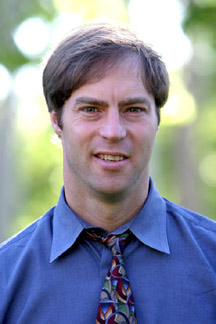Creationism is the religious belief that nature, and aspects such as the universe, Earth, life, and humans, originated with supernatural acts of divine creation, and is often pseudoscientific. In its broadest sense, creationism includes various religious views, which differ in their acceptance or rejection of modern scientific concepts such as evolution that describe the origin and development of natural phenomena.
Intelligent design (ID) is a pseudoscientific argument for the existence of God, presented by its proponents as "an evidence-based scientific theory about life's origins". Proponents claim that "certain features of the universe and of living things are best explained by an intelligent cause, not an undirected process such as natural selection." ID is a form of creationism that lacks empirical support and offers no testable or tenable hypotheses, and is therefore not science. The leading proponents of ID are associated with the Discovery Institute, a Christian, politically conservative think tank based in the United States.

The National Center for Science Education (NCSE) is a not-for-profit membership organization in the United States whose stated mission is to educate the press and the public on the scientific and educational aspects of controversies surrounding the teaching of evolution and climate change, and to provide information and resources to schools, parents, and other citizens working to keep those topics in public school science education.

Eugenie Carol Scott is an American physical anthropologist who has been active in opposing the teaching of young Earth creationism and intelligent design in schools. She coined the term "Gish gallop" to describe a fallacious rhetorical technique of overwhelming an interlocutor with as many individually weak arguments as possible, in order to prevent rebuttal of the whole argument.

Kenneth Raymond Miller is an American cell biologist, molecular biologist, and Professor Emeritus of Biology at Brown University. Miller's primary research focus is the structure and function of cell membranes, especially chloroplast thylakoid membranes. Miller is a co-author of a major introductory college and high school biology textbook published by Prentice Hall since 1990.

Recurring cultural, political, and theological rejection of evolution by religious groups exists regarding the origins of the Earth, of humanity, and of other life. In accordance with creationism, species were once widely believed to be fixed products of divine creation, but since the mid-19th century, evolution by natural selection has been established by the scientific community as an empirical scientific fact.
The status of creation and evolution in public education has been the subject of substantial debate and conflict in legal, political, and religious circles. Globally, there are a wide variety of views on the topic. Most western countries have legislation that mandates only evolutionary biology is to be taught in the appropriate scientific syllabuses.
The intelligent design movement is a neo-creationist religious campaign for broad social, academic and political change to promote and support the pseudoscientific idea of intelligent design (ID), which asserts that "certain features of the universe and of living things are best explained by an intelligent cause, not an undirected process such as natural selection." Its chief activities are a campaign to promote public awareness of this concept, the lobbying of policymakers to include its teaching in high school science classes, and legal action, either to defend such teaching or to remove barriers otherwise preventing it. The movement arose out of the creation science movement in the United States, and is driven by a small group of proponents. The Encyclopædia Britannica explains that ID cannot be empirically tested and that it fails to solve the problem of evil; thus, it is neither sound science nor sound theology.

Stephen Charles Meyer is an American historian, author, and former educator. He is an advocate of intelligent design, a pseudoscientific creationist argument for the existence of God. Meyer was a founder of the Center for Science and Culture (CSC) of the Discovery Institute (DI), which is the main organization behind the intelligent design movement. Before joining the institute, Meyer was a professor at Whitworth College. He is a senior fellow of the DI and the director of the CSC.

Of Pandas and People: The Central Question of Biological Origins is a controversial 1989 school-level supplementary textbook written by Percival Davis and Dean H. Kenyon, edited by Charles Thaxton and published by the Texas-based Foundation for Thought and Ethics (FTE). The textbook endorses the pseudoscientific concept of intelligent design – the argument that life shows evidence of being designed by an intelligent agent which is not named specifically in the book, although proponents understand that it refers to the Christian God. The overview chapter was written by young Earth creationist Nancy Pearcey. They present various polemical arguments against the scientific theory of evolution. Before publication, early drafts used cognates of "creationist". After the Edwards v. Aguillard Supreme Court ruling that creationism is religion and not science, these were changed to refer to "intelligent design". The second edition published in 1993 included a contribution written by Michael Behe.
The "Teach the controversy" campaign of the Discovery Institute seeks to promote the pseudoscientific principle of intelligent design as part of its attempts to discredit the teaching of evolution in United States public high school science courses. Scientific organizations point out that the institute claims that there is a scientific controversy where in fact none exists.
The Kansas evolution hearings were a series of hearings held in Topeka, Kansas, United States from May 5 to 12, 2005 by the Kansas State Board of Education and its State Board Science Hearing Committee to change how evolution and the origin of life would be taught in the state's public high school science classes. The hearings were arranged by the Board of Education with the intent of introducing intelligent design into science classes via the Teach the Controversy method.
Neo-creationism is a pseudoscientific movement which aims to restate creationism in terms more likely to be well received by the public, by policy makers, by educators and by the scientific community. It aims to re-frame the debate over the origins of life in non-religious terms and without appeals to scripture. In the United States, this comes in response to the 1987 ruling by the Supreme Court in Edwards v. Aguillard that creationism is an inherently religious concept and that advocating it as correct or accurate in public-school curricula violates the Establishment Clause of the First Amendment.
The intelligent design movement has conducted an organized campaign largely in the United States that promotes a pseudoscientific, neo-creationist religious agenda calling for broad social, academic and political changes centering on intelligent design.
Truth in Science is a United Kingdom-based creationist organisation which promotes the Discovery Institute's "Teach the Controversy" campaign, which it uses to try to get the pseudoscientific concept of intelligent design creationism taught alongside evolution in school science lessons. The organisation claims that there is scientific controversy about the validity of Darwinian evolution, a view rejected by the United Kingdom's Royal Society and over 50 Academies of Science around the world. The group is affiliated with the Discovery Institute, the hub of the intelligent design movement, following its strategy and circulating the institute's promotional materials.
The level of support for evolution among scientists, the public, and other groups is a topic that frequently arises in the creation–evolution controversy, and touches on educational, religious, philosophical, scientific, and political issues. The subject is especially contentious in countries where significant levels of non-acceptance of evolution by the general population exists, but evolution is taught at public schools and universities.
The Discovery Institute has conducted a series of related public relations campaigns which seek to promote intelligent design while attempting to discredit evolutionary biology, which the Institute terms "Darwinism". The Discovery Institute promotes the pseudoscientific intelligent design movement and is represented by Creative Response Concepts, a public relations firm.
The Louisiana Science Education Act, Act 473 (SB733) of 2008 is a controversial anti-evolution law passed by the Louisiana Legislature on June 11, 2008 and signed into law by Governor Bobby Jindal on June 25. The act allows public school teachers to use supplemental materials in the science classroom which are critical of scientific theories such as evolution and global warming and to promote creationism as science. Louisiana was the first state to have passed a law of this type.
The relationship between intelligent design and science has been a contentious one. Intelligent design (ID) is presented by its proponents as science and claims to offer an alternative to evolution. The Discovery Institute, a politically conservative think tank and the leading proponent of intelligent design, launched a campaign entitled "Teach the Controversy", which claims that a controversy exists within the scientific community over evolution. The scientific community rejects intelligent design as a form of creationism, and the basic facts of evolution are not a matter of controversy in science.
In American schools, the Genesis creation narrative was generally taught as the origin of the universe and of life until Darwin's scientific theories became widely accepted. While there was some immediate backlash, organized opposition did not get underway until the Fundamentalist–Modernist controversy broke out following World War I; several states passed laws banning the teaching of evolution while others debated them but did not pass them. The Scopes Trial was the result of a challenge to the law in Tennessee. Scopes lost his case, and further U.S. states passed laws banning the teaching of evolution.






